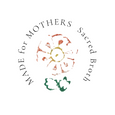
A nutrient dense postnatal diet is absolutely as important as a robust prenatal and pregnancy diet. You can not underestimate the need to replete and recover following pregnancy and labour, with ongoing requirements to supply your body with the nutrients it needs to rebuild hormones, resupply blood which has been lost, support lactation and manage sleep deprivation.
Whilst the extent of a postnatal diet is completely honoured in traditional cultures with unique practices in place to support and feed a mother the meals she needs to replete her body stores. The importance and clarification of postnatal diet needs to be addressed in our western society where postnatal depletion is becoming more apparent and social pressures on women to return to their previous pregnancy weight and lifestyle outweigh the respect for the enormity of replenishing and rebuilding a mother’s nutrient stores.
I am a huge fan of the work of Dr Oscar Serrallach in defining postnatal depletion and addressing it’s cumulative role in the incidence of depression which we are seeing as peaking in women 4 to 5 years after birth. Postpartum depression has previously been defined as something a woman would experience within 6 months of giving birth but it’s actually showing up a lot later. This really sparks the need to both appreciate that the postnatal period is as long as it takes a woman to replete, and repletion is only possible through a thorough assessment and subsequent supply of dietary and supplementation needs.
Whist we are all unique and will therefore need to individually address specific deficiencies and supplementation, dietary foundations apply to all women.
Protein. Requirements for proper repletion and for breastfeeding is roughly 80grams per day. This is roughly 1.5 times the normal amount required in a healthy diet for a non-pregnant woman.
The inclusion of slow cooked meats and bone broths will serve you tremendously well during your postnatal period. This is a concept that is new to a modern western diet but is honoured in so many tradition cultures, still being practiced today. In China, a month is given to a new mother where she is served pig trotters to special types of chicken soup. In India, slow coked fish stew and kitchari are often given to build agni (digestive fire). In Korea it is commonly seaweed soup. And many more culture have their adapted versions.
One of the reasons for these dietary customs is that special care needs to be taken to support an otherwise vulnerable digestive function after birth, and the inclusion of such meals seems imperative. Another clear reason is that slow cooked meats and broths offer a high value of gelatine which helps the body make collagen which is vital to repair. Broths are also easily digestible, hydrating, contain many minerals and other nutrient-rich substances.
Carbohydrates. Roughly 200 grams per day is ideal – preferably from colourful array of vegetables to meet phytochemical and antioxidants needs as well as supplying a wider range of vitamins and minerals. The most important thing to recognise is the source. Choosing the right carbohydrates such as complex carbs found in unprocessed foods – like low inflammatory grains, legumes and vegetables - are vital to support our nutrient demands whilst keeping our weight stable.
Fats. Roughly 70 grams per day is an optimal amount however there is a wide range of ‘fats’ so choosing the right type absolutely matters.
Good choices include quality unsaturated fats like olive oil, oil, avocado, nuts and seeds. Sources of omega 3 fatty acids like cold water oil fish. Cholesterol rich fats (which are the building blocks to your mother hormone DHEA as well as your oestrogen, progesterone, testosterone and cortisol). And small amount of saturated fats like ghee, animal meats, eggs, coconut oil, yoghurt
Take these simple concepts of macronutrient values and focus your food preferences on broths, or other gelatine rich sources, honouring slow cooking methods and you will undeniably benefit your body and your recovery from pregnancy, labour and lactation.
References
Gedgaudas, N. T., (2011). Primal Body, Primal Mind (2nd ed.). Rochester, Vermont: Healing Arts Press.
Grossman, S. C., Porth, C. M., (2014). Porth’s Pathophysiology Concepts of Altered Health States (9th ed.). Philadelphia, PA: Lippincott, Williams & Wilkins.
Serrallach, O., (2018). The Postnatal Depletion Cure (1st ed.). Sydney, NSW: Hachette
Allison, J., (2015). Golden Month. Auckland, New Zealand: Beatnik Publishing.
Ou, H., (2016). First Forty Days. New York, NY: Abrams.






























